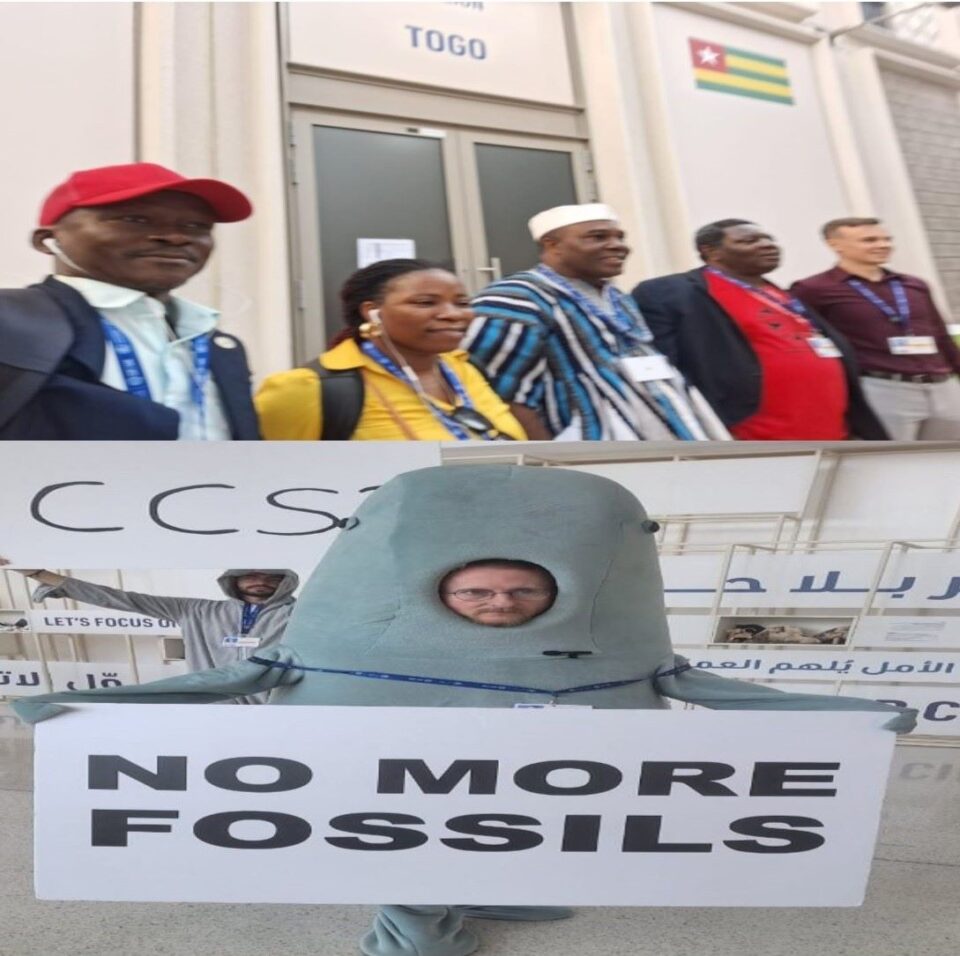At The Annual Climate Change Conference
NEW HAVEN, CONNECTICUT, USA— Green Advocates International and the Allard K. Lowenstein International Human Rights Clinic of Yale Law School have written the UN, calling for stronger protection of environmental defenders attending the annual Conference of the Parties (COP) events, a statement said on Wednesday.
Organized under the auspices of the United Nations Framework Convention on Climate Change (UNFCCC), COP which is the world’s largest forum for international climate negotiations.
The two organizations have jointly submitted an input (report) to the United Nations Office of the High Commissioner on Human Rights (OHCHR) to call for changes within the UN framework to fully protect climate defenders’ free participation at the (UNFCCC)’s annual COP meetings.
The submission seeks to inform OHCHR’s 2024 report on intimidation and reprisals. It details ongoing issues facing environmental defenders attending the annual COP meetings, including intimidation and repression of their speech while at COP, and reprisal upon return to their home countries. COP meetings are currently the preeminent forum for international climate negotiations and involve discussions on climate change and other related environmental issues.
The submission evaluates how the UN and host countries treat environmental defenders, many of whom face extreme threats at home, highlighting the special risks defenders endure when attending COP.
The Coordinator of the Mano River Union Civil Society Natural Resources Rights and Governance Platform and Head of the Secretariat of the Environmental Rights Africa (ERA) Coalition based in Monrovia, Liberia, Peter Quaqua declares: “Defenders represent the communities hardest hit by the climate crisis, yet they are afforded the least visibility at the most significant setting for climate negotiations.”
Peter added, “Even as the climate crisis worsens, attendance by civil society and environmental defenders at the COP gatherings has been increasing yearly. This should inform the UN that the presence of activists at COP is unavoidable; hence, the need to provide maximum protection and due respect to them.”
The submission is precipitated by inhuman treatments and attacks experienced by environmental defenders at various COP events, including COP28, which took place in Dubai in early December 2023. The report identifies critical gaps in protection for environmental defenders. It points to several shortcomings, most notably that State parties and the UNFCCC itself do not appear to recognize the speech rights of attendees at COP, as reflected in the UNFCCC’s guidelines.
Radiatu Haja Sheriff Kahnplaye, Policy Advisor for the Natural Resources Women Platform, a women’s social movement across West Africa, observed that “Through the COP meetings and demonstrations, we can elevate issues uniquely faced by our communities that otherwise go without discussions at COP.”
However, the failure to affirm basic rights had knock-on effects across COP28. Shehla Chowdhury, one of the researchers lamented, “We were struck by the widespread chilling of defenders as well as overt censorship at COP28.”
The submission notes that defenders are placed in a double bind when COP occurs in a host country that does not respect the rights of freedom of speech and association more generally; attendees feel they must confine their actions to the UN-run space, even though that means abiding by UNFCCC restrictions on speech. A particular sticking point was the UNFCCC’s ban on criticism of particular countries or companies.
“The UNFCCC tells us we are welcome – but only if we give up our rights, to tell the truth,” said, Atuheire Brian, Executive Director of the African Initiative on Food Security and Environment (AIFE-Uganda).
“With so many rules around what could and could not be said in demonstrations as well as cameras placed across the venue, it was hard to feel like you could speak freely at any point,” added Ina-Maria Shikongo, a climate activist and member of Fridays For Future.
In order to protect the critical voices of environmental defenders in climate negotiations, the proposal urges the UNFCCC to take several immediate measures, including, making public the UN’s agreement with the host country.
The UNFCCC’s Secretariat is urged to incorporate clearer protections for speech and assembly into COP guidelines and to make space for defenders at the negotiations table themselves. “It is simply unfair to ask environmental defenders to take on the real risks of repression without at least knowing whether the host country has agreed to observe the most basic protection of freedom of expression,” Ding Yuan criticized.
Said Alfred Lahai Gbabai Brownell Sr., Founding President of the Global Climate Legal Defense Network and Lead Campaigner Founder of Green Advocates International, “To safeguard the critical voices of activists in climate negotiations, I implore the UNFCCC to strengthen host country agreements, incorporate substantive speech protections into COP guidelines that have impeded the full participation of climate activists, and increase the participation of environmental defenders in negotiations.”
International law including the Universal Declaration on Human Rights, the International Covenant on Civil and Political Rights and UN Declaration on Human Rights Defenders affirm a human right to free speech. “The UN must ensure these rights are upheld within the spaces they manage,” added Alfred Brownell.
The clinic team, comprising Shehla Chowdhury, Chloe Miller, Sonya Schoenberger and Ding Yuan, under the supervision of Hope Metcalf (Lecturer in Law and Executive Director, Schell Center for International Human Rights) and Alfred Brownell (Tom and Andi Bernstein Visiting Human Rights Fellow and Founder of Green Advocates International, worked on a year-long project that evaluated risks facing global climate defenders.
Seven environmental activist coalitions co-signed on the submission, including the African Climate Platform, the Alliance for Rural Democracy, the Egyptian Commission for Rights and Freedom, the Egyptian Organization for Environmental Rights, the Environmental Rights Legal Framework Coalition for Africa, the Mano River Union Civil Society Natural Resource Rights and Governance Platform, and the Natural Resource Women Platform.

